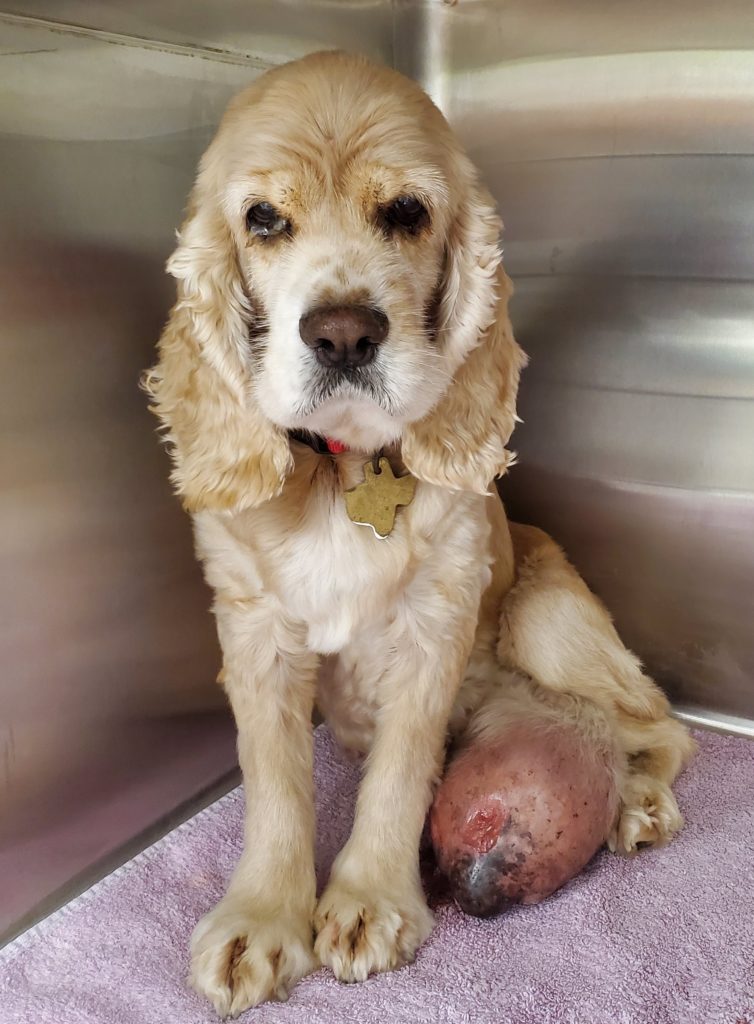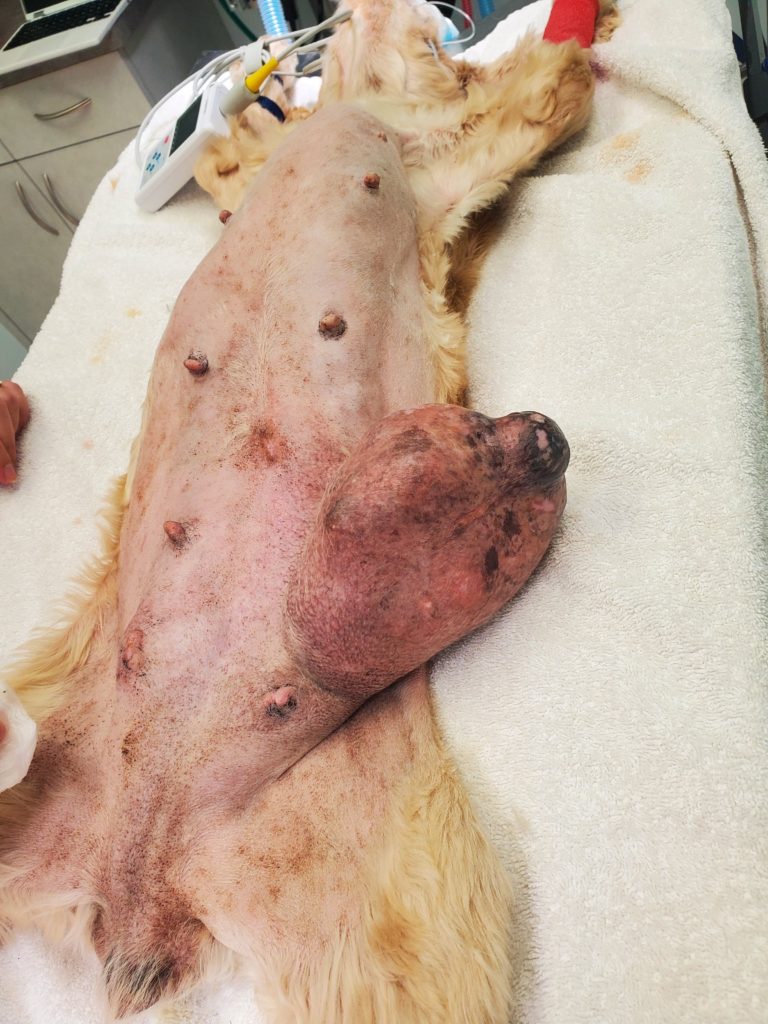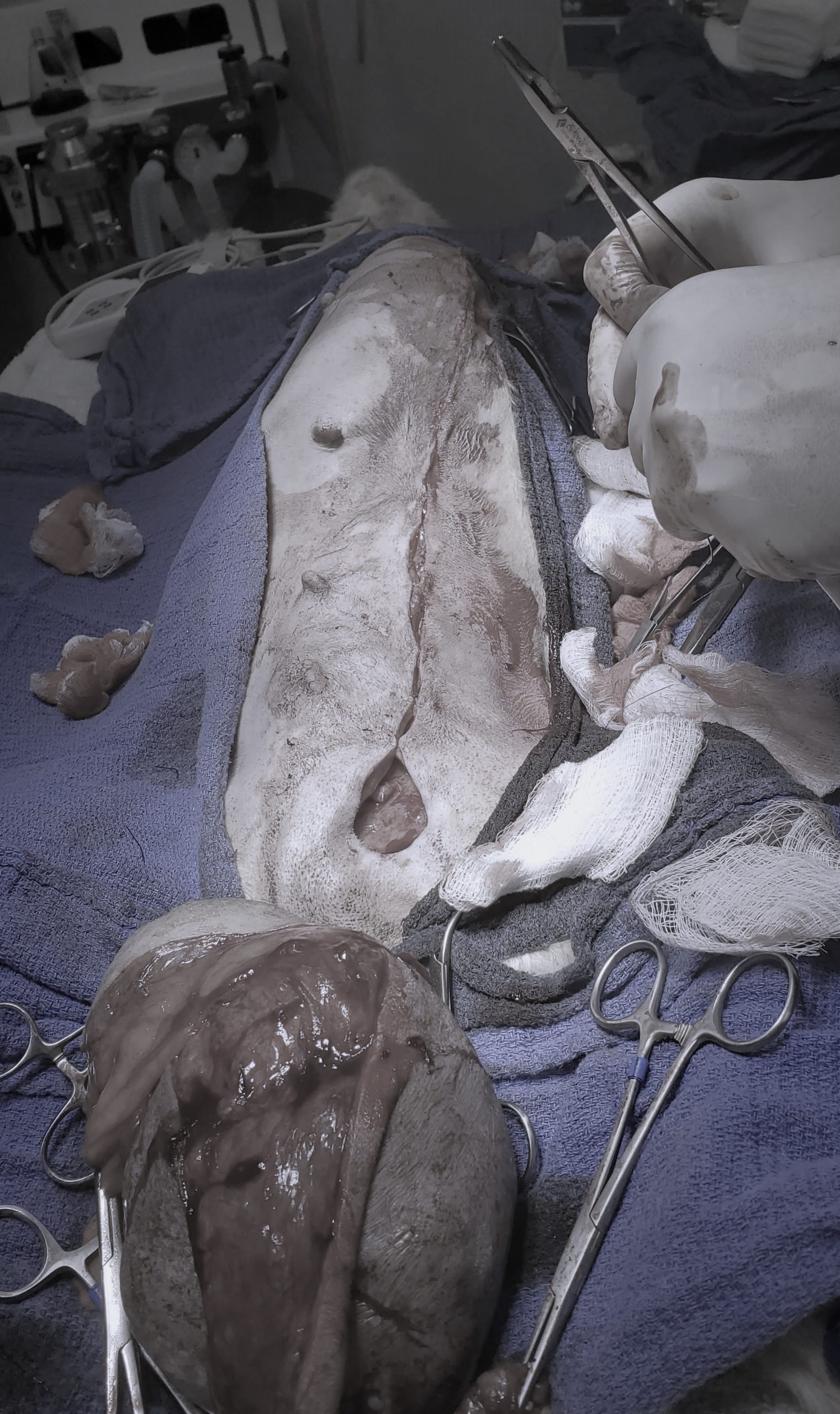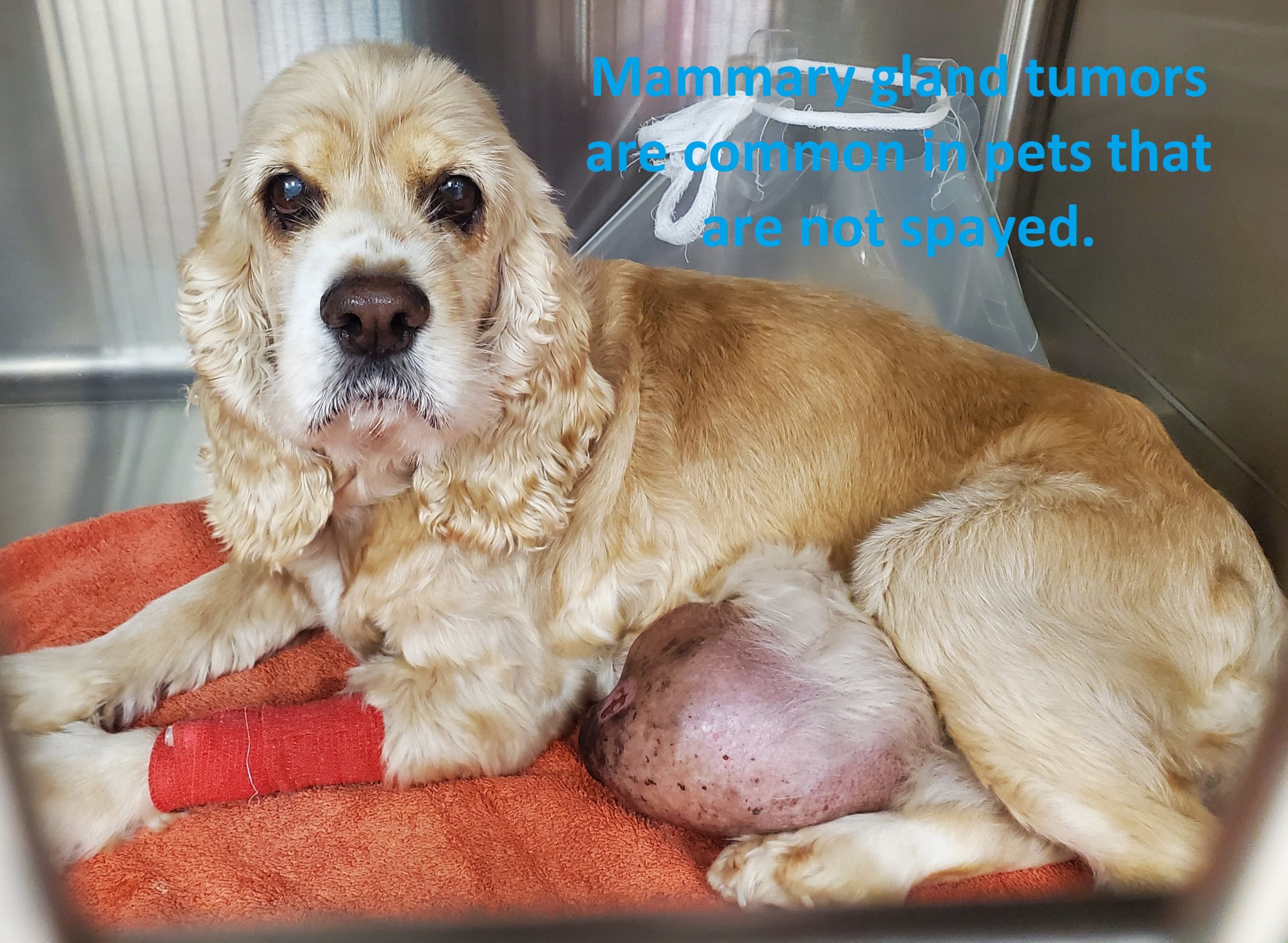Risk is much higher if your pet is not spayed when young.
Mammary gland tumors are very common in dogs and cats. They are the equivalent of breast cancer in people, however, mammary gland tumors are much more common in pets. Chances of breast cancer in women is one in nine, while in unspayed dogs it is one in four, much higher. In people, there has been lot of campaigns for awareness but what about the pets? Unspayed female pets are more prone, however, male pets can also develop mammary gland tumors.

If a female dog is spayed after more than one heat cycle, her chances of getting mammary gland tumors increases by 25%. Female dogs that were spayed after one heat had 7% chance of getting mammary gland tumors. Female dogs that were spayed before their first heat had zero incidence of mammary gland tumors. Therefore, the best way to prevent mammary gland tumors is to have your pet spayed before the first heat. However, spaying later in life will also prevent the spread of mammary gland tumor as these tumors are because of estrogen produced in ovaries. During spay surgery the ovaries are removed hence reducing the estrogen. In dogs 50% of the mammary gland tumors are malignant.
In female cats the incidence is also very high. Cats that are spayed later in life are also at risk of developing mammary gland tumors. Siamese cats seem to be more susceptible to mammary gland tumors. In cats, 90% of the mammary gland tumors are malignant.
Mammary gland tumors are diagnosed after 9 years of age, so it is important to check your pet for any tumors and get those tested and surgically removed.
Treatment of choice is surgical removal of the gland(s) and tested by a pathologist. Before surgery we recommended blood work, chest x-rays and checking regional lymph nodes for metastasis. Most pets may do good after surgery and need no further treatment. Some pets may need chemotherapy or radiation therapy depending on the pathologist report and grading.


If you see/feel any kind of tumor on your pet, please call Harmony Pet Clinic to make an appointment. We can test and do the surgery to remove the tumors. Our veterinarian is a seasoned surgeon and will do the best for your pet.
Further readings:
- https://veterinarypartner.vin.com/default.aspx?pid=19239&id=4951841
- https://veterinarypartner.vin.com/default.aspx?pid=19239&id=4952564
- https://veterinarypartner.vin.com/default.aspx?pid=19239&id=4951464
- https://veterinarypartner.vin.com/default.aspx?pid=19239&id=10002077
- https://veterinarypartner.vin.com/default.aspx?pid=19239&id=4951480
